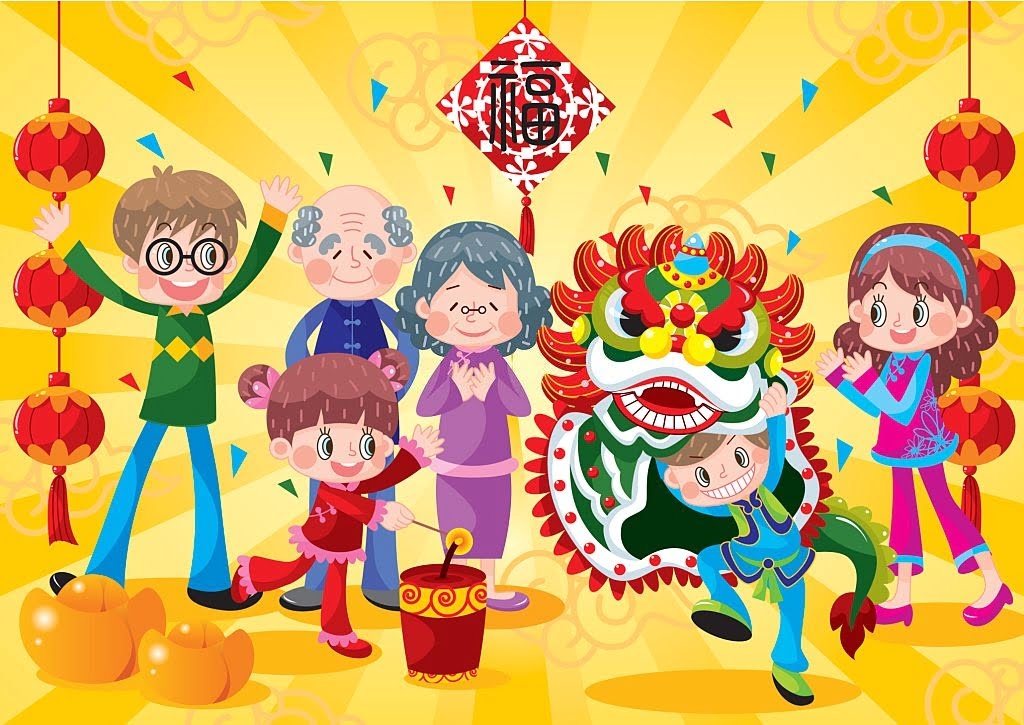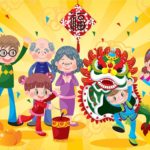Families of Ancient China

Author: Joshua Sosa
Throughout the course of history, different cultures have held different meanings on what a family should be like and the structure of the family. Though some families have a looser adaptation of how families should function, others have a more strict and tighter grip on the responsibilities of every member. Yet, it is clearly visible that in most of cultures and societies the families in Ancient China are no exception to this idea, families were an enormous part of the way that they people lived their lives. The motive for most of the value in families in Ancient China were because of Confucianism rising in the country and its beliefs becoming core values within families. These sets of codes/rules were incredibly important and for the most part was required to be followed by law. As a result, the country followed a structure that gave it a firm set of responsibilities to the different members of the family. This paper will dive into the importance of each of the members of a family including the father, mother, son and daughter as well as the structure of a family and the values every household that committed to Confucianism must follow.
Introduction
During Ancient China one of the most important and impactful belief systems was Confucianism which was founded by Confucius himself. Being one of the most important philosophers in Ancient China during 551 BC to 449 BC. Some of his many teachings that were included in the belief system, highlighted that values of the different relationships that one must have. Confucius proposed that there should be a sense of responsibility and intimacy in the different relations of different family members. Adding on, he also suggested that the state itself had to work like a family and take relationships within people seriously as well. As a form to further push these beliefs, it was stated how the different members of the family were required to act (Britannica). In response to these beliefs, Ancient Chinese families easily adopted them and used them as teachings of the responsibilities of the different members of the family and the way in which they should each conduct themselves. Overall, different family members had different roles to play within their own families in Ancient China to support the structure given by Confucius.
The Role of a Father
One of the most important authorities within the family is the male figure, majorly known as the father of the family. Being a father, they have the responsibility to be able to make the decisions for the family, showing their height of authority. According to the culture of the families, “The father, being a breadwinner, to a large extent is still a supreme figure in a family who cannot be challenged by the mother and children,” (Tong, 2017:303). This quote shows that a father from the family has a responsibility to hold the position of the highest authority in families. Therefore, they are the face of the family and are required to hold the weight of the family’s fate, choices and lessons that they teach throughout history. However, to have the respect of their authority, a father must be able to provide to the family. As one of their major responsibilities, a father in Ancient China needs to have the economic strength to support his family. Building on to the idea that a father is also responsible to provide for their families, “fathers have been largely absent in children’s education; rather, breadwinning remains a key role of Chinese fathers. The belief that a father should venture out to financially support his family while the mother takes responsibility for life inside the home” (Pattnaik, 2013: 304). As depicted by the quotation though fathers are absent for most of the education of the children, in doing so they are required to find a job and to be able to have a consistent province to his family. To work on being able to supply the family with any needs that they may have is one of the primary jobs of the father, just as a mother is required to provide her service in the household. Last but not least, one of the other jobs that was mandated by Confucius is to have the ability to teach the future generations of his family the same teachings that he had previously learned; therefore, pushing tradition onward, and helping his future lineage to keep their honor and responsibilities in Confucianism. Confucius states, “… evaluate a child’s performance… Observe his aspirations when his father is alive, and observe his actions when his father passes away”, which holds fathers responsible for their children’s behavior and performance,” (Pattnaik, 2013: 302). This quotation shows a responsibility that is required to be carried by the father, to be able to teach future generations the different values that the father learned. In that manner, different generations can pass on the Confucius teachings and lessons from tradition. This quote also emphasizes that fathers can not only build memorable lessons for their sons, but that they can also show their children the right example.
The Role of a Mother
Despite having a role with equal authority for today’s age, women weren’t as equally valued in the same authority with men. During Ancient China women were extremely valued for their effort in the household and were responsible for placing a lot of care into serving the family. However, they were mistreated for being their sex and considered as a lower position compared to other males, such as fathers and sons. Such can be seen as quoted by the Journal of Research in Gender Studies, that states “Both the Chinese and the Japanese social systems were obviously patrilineal and patriarchal, based on the separation of influence and power zones –women traditionally belonged to the “interior,” that is the domestic area, while men were associated with the “exterior,” that is with governance and business,” (Valutanu, 2012). Based on tradition women were required to remain in their households and be of service as a housewife, while men had the ability to go out and take part in jobs that involved the world. Though some may feel that this proves that women had a lot of responsibility, considering that they have control over the daily domestic tasks in the homes, it can also be argued that women also were kept away from social tasks since they weren’t viewed as proper enough to take up those routines. The quote states that by tradition the women “belonged” to the inside of homes- implying that as a result of being women they were required to stay at home and do daily tasks without being given the option or opportunities as that that men have. To further support on the idea that women were kept in households to support the family, its added on “Thus, the most important duty for the wife is to fulfill the duty of the daughter-in-law and the role of the mother,” (Ding and Zhong, 2014). This quote encourages that women are only pushed and held responsible for their tasks at home under a strict control. Yet in the same way, men are also held responsible for their own tasks.
In the same manner, women are also held under a strict code when concerning marriage. No matter the circumstances, women are required to be able to remain completely responsible to their husbands always, and to submit completely to them. One of the visible manners in which one could observe this was based on their submission to the males of the families as seen in the following quotations from Whitefield, who discusses the interaction between a wife and the husband in a marriage. Primarily the wife was needed to fall under the authority of the men as “They were expected to demonstrate obedience to the most important man in their lives, be it father, husband, or son,” (Whitefield, 2008). This quotation states the issue of having to submit under the authority of the men, which pushed down their authority in the family in comparison to modern day culture. Moreover, the quote mentions an inclusion of the son of the women having a higher authority as well. Women were required to obey the decisions of not only their husbands but their male children as well. On the topic of male children, the wife of the man was also denied the ability to be able to have access to their own interactions with their husband’s family as well. In the same quotation, it continues “They were not granted full admission to their husband’s family and yet they bore the burden of producing a male heir.” As described, the wife of the husband was given a responsibility of having to give the family a male child to take up the mantle of leadership for the family, however in return they were not given the same access and treatment to their husband’s family. The responsibility of the wife is clear to be focusing on the procreating a male child to keep the family moving forward. Furthermore, the same journal later states the strength of the loyalty of the wife to her husband, later into the passage quoting that they “were pressured to remain widows after their husband’s death in honor of his memory and in support of his parents.” Clearly one can notice how important it was for the women to be close with their husbands, to a point that it was required for them to be a widow. Thus, indicating the seriousness of the bond between the husband and wife, that the wife may not be able to look for a new husband if her old husband had passed away as a signal of honor.
The Role of Children
Though the other family members had larger roles in Confucianism, children also had responsibilities of their own. Though it may not have been as crucial as it was with both parents, the children were required to also put out their very best that they could out into the world. According to the Journal of Arts and Humanities “The quote emphasizes that continuation of the family is a major aim of family education and the mission is always performed and transmitted by the father.” (Tong, 2017: 7). Thought this quote, one can determine that one of the most important parts of the life of a child is that they continue the same family traditions and education that they have previously received. The son is required to teach the same teachings that they learned from their father to their own children. In the same way, daughters are required to fall into tradition and to be able to serve the house in the same way as their mothers can. Because of passing on these teachings, the family is not only able to keep the tradition alive through the many generations, but they are also able to maintain a sense of honor as well. To further push support the idea that the children were required to learn from parents, “The mutual learning between the father and the son can contribute to a more harmonious parent-child interaction and hence should be considered by programme designers of parenting education” (Tong, 2017: 7). This quotation gives more credibility to the idea that the parents, in this case the father in particular are required to have a strong interaction with their children, in order to create a strong bond and to be able to educate them in everything they know in order to pass down. Bringing in the same evidence used to show one of the jobs of a father, to educate their children, “To evaluate a child’s performance, Confucius suggested, observe his aspirations when his father is alive, and observe his actions when his father passes away”, which holds fathers responsible for their children’s behavior and performance.” (Pattnaik, 2013: 302). As seen in this quotation, Confucius believed that a child’s job and actions stem from the teachings that they receive from the father, if they are male children. Based on the way that they can act and perform in society, it determines whether the father was successful in teaching the children properly. Though the quotation does highlight the importance of a father to be held responsible over the teachings of the children, as stated prior, the quote can also be interpreted as a similar responsibility to the children to be able to learn as much as they can and to be able to keep those teachings. By following those teachings, the children can show society that their family has the same values seen pleasuring as other families in the terms of Confucian ideals.
Though the children may have a strict role similarly to their parents, there was also a downside to being at a young age. As a result, to not having the same authority as their parents, “Children and younger people were treated as property of their parents,” (Ding and Zhong, 2014). This quote shows that despite the responsibility beheld by the children to keep the tradition moving on and to show society that their parents are teaching them the proper values, children were undervalued similarly as women. For the parents to place a large weight on top of the children but then consider them as part of their property, shows a serious issue in the way that children were treated. However, despite the idea that the children were known as property, they were still incredibly valued as the future of the family.
Conclusion
To conclude, one could see the impact of Confucianism on the culture of Ancient China, simply through the scope of family structure and roles. Different members had large responsibilities that they had to act on to preserve the structure given to them by Confucius. Yet in doing so, there were also some consequences in terms of authority as children and women were kept under the men. However, Ancient Chinese families easily adopted them and used them as teachings of the responsibilities of the different members of the family and the way in which they should each conduct themselves. Overall, different family members had different roles to play within their own families in Ancient China to support the structure given by Confucius. Though some people may not agree with the way that the family was structured in the culture of Ancient China, it did prove to be extremely effective and structured the way of life in impactful ways.
References
Ding, Xiaodong, and Zhong, Dale. 2014. Towards A Thick Description Of Chinese Family and Political Culture: Confucianism, Socialism AndLiberalism in China. Frontiers of Law in China. Academic OneFile. vol.9, Issue 3. p. 425+.
Jyostna Pattnaik. 2013. Father Involvement in Young Children’s Lives. Educating the Young Child. Vol 6. p 1-367
Tong Hou-kin. 2017. The Ancient Chinese Views of Family Education Recorded in Pre-Qin (before 221 BC) Confucian classics. Journal of Arts and Humanities. Vol 6 Issue 5: p. 42-54.
Valutanu, Luciana Irina. 2012. Confucius and feminism. Journal of Research in Gender Studies. Academic OneFile. Vol. 2 Issue. 1 p. 132+.
Weiming, Tu. 2018. Confucianism. Encyclopædia Britannica.
Whitefield, Brent. 2008. The Tian Zu Hui (Natural Foot Society): Christian Women in China and The Fight Against Footbinding. Southeast Reviewof Asian Studies. Academic OneFile. Vol. 30. p. 203+.







Responses